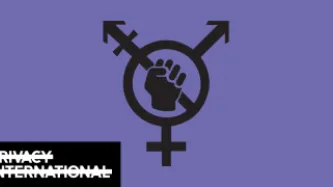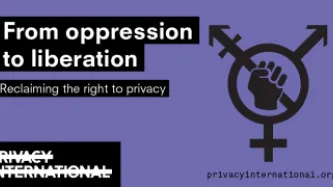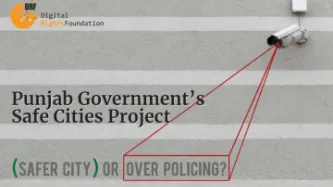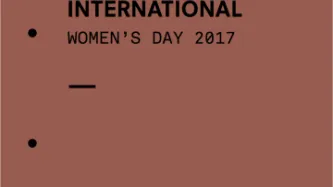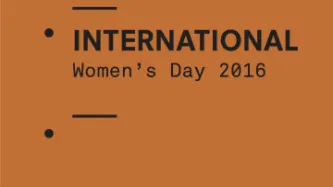Search
Content type: Long Read
Introduction
The 28th of September marks International Safe Abortion Day. It remains a day necessary to mobilise and raise awareness of the continued struggles women and girls face when accessing reproductive healthcare, including access to safe abortion. Across the world, abortion continues to be criminalised, restricted and in some places under attack. All of which constitute severe obstacles for women and girls to fully exercise their human rights, particularly their right to privacy, which…
Content type: Long Read
In the wake of the recent news of the US Supreme Court’s decision to overturn the ruling of Roe v Wade in its ruling in Dobbs v Jackson Women's Health Organization, headlines have been dominated by conversations around privacy and fears of how the criminalisation of abortion care and surveillance by law enforcement will play out in a tech driven world.This discussion is increasingly important as governments move towards digitising their healthcare systems and as more individuals choose to…
Content type: Long Read
This piece is a part of a collection of research that demonstrates how data-intensive systems that are built to deliver reproductive and maternal healthcare are not adequately prioritising equality and privacy.
What are they?
Short Message Services (SMS) are being used in mobile health (MHealth) initiatives which aim to deliver crucial information to expecting and new mothers. These initiatives are being implemented in developing countries experiencing a large percentage of maternal and…
Content type: Long Read
This report is available in English.
La mayoría de los documentos nacionales de identidad y demás documentos emitidos por autoridades estatales incluyen un marcador de género. Estos marcadores suelen recibir el nombre de “marcador de sexo” aunque este término no sea preciso. La presencia de dichos marcadores, especialmente en los certificados de nacimiento, promueve el énfasis de nuestra sociedad en el género como criterio de asignación de identidades, roles y responsabilidades sociales. Al…
Content type: Long Read
Este informe está disponible en español.
Most national ID or identifying documents include a gender marker. This is often known as a 'sex marker,' even though the term is inaccurate. The presence of such markers, especially on birth certificates, contribute to our society’s emphasis on gender as a criterion for assigning identities, roles and responsibilities within society. With gender being such a determining and dominant identifier, it puts it at the centre of so many arrays of our…
Content type: Long Read
All around the world people rely on state support in order to survive. From healthcare, to benefits for unemployment or disability or pensions, at any stage of life we may need to turn to the state for some help. And tech companies have realised there is a profit to be made.
This is why they have been selling a narrative that relying on technology can improve access to and delivery of social benefits. The issue is that governments have been buying it. This narrative comes along with a…
Content type: Long Read
This piece was written by Aayush Rathi and Ambika Tandon, who are policy officers at the Centre for Internet and Society (CIS) in India. The piece was originally published on the website Economic Policy Weekly India here.
In order to bring out certain conceptual and procedural problems with health monitoring in the Indian context, this article posits health monitoring as surveillance and not merely as a “data problem.” Casting a critical feminist lens, the historicity of surveillance practices…
Content type: Advocacy
TEDIC, InternetLab, Derechos Digitales, la Fundación Karisma, Dejusticia, la Asociación por los Derechos Civiles y Privacy International acogen el llamado de la Relatoría Especial sobre Derechos Económicos, Sociales, Culturales y Ambientales (DESCA) de la Comisión Interamericana de Derechos Humanos (CIDH) de enviar información para la elaboración del Informe Anual sobre DESCA del año 2019, que se presentará ante la Organización de los Estados Americanos (OEA) en 2020.
El objeto de este…
Content type: Advocacy
TEDIC, InternetLab, Derechos Digitales, Fundación Karisma, Dejusticia, Asociación por los Derechos Civiles and Privacy International welcome the call made by the Special Rapporteurship on Economic, Social, Cultural and Environmental Rights (ESCER) of the Inter-American Commission on Human Rights (IACHR) to inform the preparation of the Annual Report of the ESCER for the year 2019, which will be presented to the Organization of American States (OAS) during 2020.
This submission aims to outline…
Content type: News & Analysis
Photo by Ray Witlin / World Bank CC BY-NC-ND 2.0
This article has been written by Ambika Tandon, Policy Officer at the Centre for Internet and Society, in collaboration with Privacy International.
On October 17th 2019, the UN Special Rapporteur (UNSR) on Extreme Poverty and Human Rights, Philip Alston, released his thematic report on digital technology, social protection and human rights. Understanding the impact of technology on the provision of social protection – and, by extent, its…
Content type: Examples
The New York City public benefits system has been criticized for its punitive design, how it too often disciplines, rather than helps, people who are legally entitled to benefits. According to Mariana Chilton, the public benefits system is designed to control, surveil, and penalize low-income people, and it is women of colour who disproportionately bear these burdens. Chilton highlights how the violent treatment of Jazmine Headley and her baby in a public assistance waiting room in December…
Content type: Examples
In August 2017, it was reported that a researcher scraped videos of transgender Youtubers documenting their transition process without informing them or asking their permission, as part of an attempt to train artificial intelligence facial recognition software to be able to identify transgender people after they have transitioned.
These videos were primarily of transgender people sharing the progress and results of hormone replacement therapy, including video diaries and time-lapse videos. The…
Content type: News & Analysis
Earlier this month, Brunei attracted international condemnation for a new law that will make gay sex punishable by death. While this is clearly abhorrent, Brunei is not the only country with explicit anti-gay laws.
Homosexuality is criminalised in over 70 countries around the world. And even in countries where gay sex is legal, such as the US, the LGBTIQ+ community still faces discriminatory surveillance and profiling by law enforcement agencies.
Through using the Internet and mobile apps,…
Content type: News & Analysis
At Privacy International, we talk about: “the world being on fire.”We say it to talk about the recurring threats to our democracies, the elections of authoritarian leaders, the current political climate… Or the actual climate. More often than not, we use it to talk about the (lack of) security in the design and implementation of computer systems.
But there is another kind of fire. The fourth wave of feminism – the one that contributed to the protests following the 2012 gang rape of…
Content type: News & Analysis
Image source: Oxfam
This piece was co-authored with Ruhiya Seward, Senior Program Officer at IDRC and originally appeared here.
What if in trying to make development more equitable we’re creating risks that disproportionately impact people based on their gender?
Development programming aims to be both sustainable and equitable in part by recognizing the implications of inequality in its many forms, whether by gender, ethnicity, socioeconomic status, or geolocation. The adoption of the…
Content type: Report
Whose privacy are we fighting for when we say we defend the right to privacy? In this report we take a hard look at the right to privacy and its reality for women, trans and gender diverse people. We highlight how historically privacy has been appropriated by patriarchal rule and systems of oppression to keep women, trans and gender diverse people in the private sphere.
For us, this report is also an opportunity to show how surveillance and data exploitation are also uniquely affecting…
Content type: Long Read
The Privacy International Network is celebrating Data Privacy Week, where we’ll be talking about how trends in surveillance and data exploitation are increasingly affecting our right to privacy. Join the conversation on Twitter using #dataprivacyweek.
It is often communities who are already the most marginalised who are at risk because of the privacy invasions of data-intensive systems. Across the globe, we see the dangers of identity systems; the harms of online violence against women and the…
Content type: News & Analysis
Photo credit: US Immigration and Customs Enforcement
The trial of Mexican drug lord Joaquin “El Chapo” Guzman started in New York back in November 2018. But last week, the jurors were presented with a trove of new key evidence: dozens of text messages exchanged between Guzman, his wife, and his mistresses.
The reason behind this set of revelations? Guzman had been spying on his wife and mistresses, using publicly-available surveillance software called FlexiSpy. Once installed on his targets…
Content type: News & Analysis
By Digital Rights Foundation, Pakistan
What is a safe city?
The answer to this question is not uniform; in fact it varies according to who you ask.
In a focus group conducted by Digital Rights Foundation in May of last year, consisting of women rights activists from across Pakistan, the answer meant imagining a city that was not only safe for women, in terms of their physical safety, but also welcoming for women and non-binary individuals in its architecture and facilities. Women expressed…
Content type: News & Analysis
Written by Datos Protegidos
04:16: Carolina can´t sleep. She grabs her mobile from the nightstand next to her bed to check her WhatsApp notifications and read some tweets. She decides to disconnect to and tries to go back to sleep.
07:00: Carolina is woken by her mobile phone alarm. She picks it up and checks her social networks and messages again. To her astonishment, she finds a message in a WhatsApp group from her former college classmate Pablo at 5:25 asking if anyone was still…
Content type: News & Analysis
Written by Privacy International
08:27: Jen gets on the London Underground to go to work. She uses her contactless debit card to pay for the tube, so Transport for London knows where she is travelling to and from and her bank knows when she takes the tube.
08:36: The public WiFi on the tube means that even when Jen doesn’t connect to it, her every step inside the underground is tracked. The data will eventually be sold to advertisers.
08:58: Jen arrives at work. As with all the lower…
Content type: News & Analysis
Surveillance in digital spaces is the policing and monitoring of activity of those occupying these spaces. Surveillance affects free speech, privacy and behaviour of digital users. Feminism and a feminist approach to surveillance puts marginalised communities, those that are victims of class discrimination, racial and patriarchal structures, at the centre of discourse around privacy and surveillance.
Surveillance in Pakistan is often seen as an issue of national security. With the National…
Content type: Long Read
In this special briefing for International Women’s Day 2017, we explore through the work of the Privacy International Network some areas of concern being addressed in relation to privacy, surveillance, women’s rights, and gender. Coding Rights demonstrates the important of generating and disseminating gendered content on issues of surveillance in Latin America as a means of inciting informed action. In Chile, Derechos Digitales explored the booming market of mobile applications related to…
Content type: Report
The right to privacy is a qualified right. Gender is not and cannot be its qualification.
For this year’s International Women’s Day, the Privacy International Network is sharing some of its successes as well as the challenges and opportunities we face in at the intersection of gender issues and the right to privacy. Click here to see this feature.
Interferences and violations of the right to privacy, as described in the UN Declaration of Human Rights, affect society as a whole. However,…
Content type: News & Analysis
This Sunday is International Women's Day. You could celebrate the considerable progress in legislating for women's equal rights. You could join a protest against political and legal inequality, discrepancies in women's access to healthcare, education and other social goods. You could thank your mom for delivering you.
Here at Privacy International, we want to commemorate the importance of this day by looking at some of the ways surveillance technologies can be used to control women and how the…











